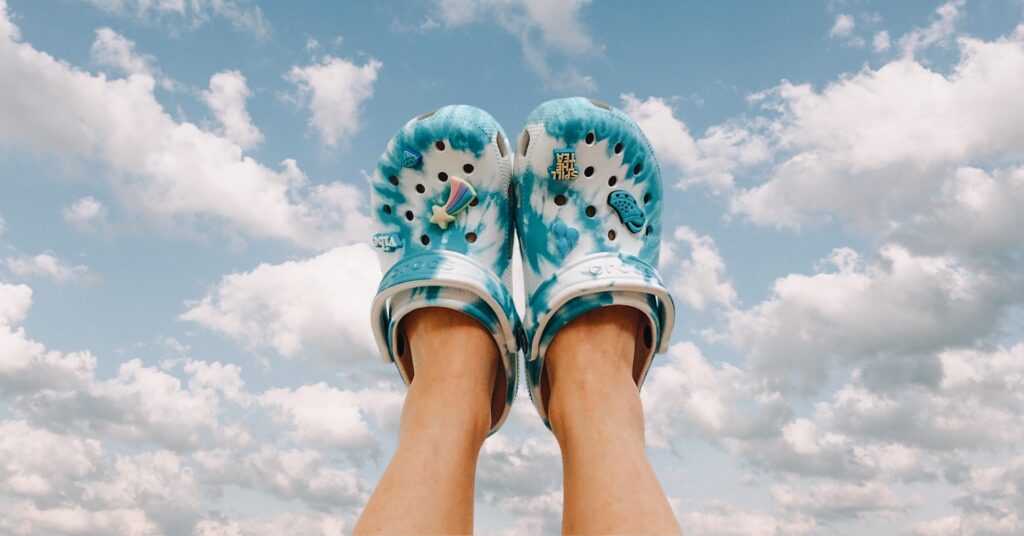Still not sold on Crocs? We get it. But you may have a reason to go and buy a pair now. The shoe brand has revealed it’s going 100 percent vegan in order to help fight the climate crisis.
Crocs will be completely vegan by the end of 2021. The move is part of the brand’s commitment to becoming a net zero company by 2030. In order to accomplish this, Crocs is embracing more sustainable, bio-based materials and packaging.
“Taking action to reduce our environmental footprint by implementing more sustainable practices across our entire business is the right thing to do for Crocs,” the company’s CEO, Andrew Rees, said.
Many of the company’s styles are already vegan. Crocs signature material, Croslite, is animal-free, however, the brand still uses leather in some styles.
According to the company, its Classic Clogs already have a low carbon footprint, emitting 3.94 kilograms of carbon dioxide equivalent. But Crocs plans to reduce these emissions further by transitioning to a more sustainable Croslite material.

Crocs Goes Vegan for the Planet
According to the Massachusetts Institute of Technology, the average pair of running shoes generates 30 pounds of carbon dioxide emissions. This equates to keeping a 100-watt light bulb turned on for an entire week.
The assessment found that two-thirds of the shoes’ carbon footprint stemmed from the manufacturing process. The remaining emissions occurred during the extraction of raw materials for the shoes.
In addition to minimizing its carbon footprint, Crocs is also working to reduce the environmental impact of packaging. In 2020, 85 percent of all Crocs shoes were sold without boxes. The company says it plans to continue exploring more eco-friendly packaging alternatives.
The company is also working to keep its shoes out of landfills through recycling and re-commerce programs and by donating unsold pairs.
Crocs isn’t the only shoe brand to embrace vegan materials for the planet. In June, skateboarding shoe brand Vans launched a new collection of sustainable shoes. The Eco Theory collection revamped styles of its classic shoes with eco-friendly materials, such as organic cotton, cork, hemp, and natural rubber.
Vans has committed to using 100 percent renewable energy in its facilities by 2025. It also plans to reduce its greenhouse gas emissions by 30 percent by 2030.
Last year, German athletic shoe and apparel brand Adidas also began veganizing its classic leather styles. The company released new versions of two of its iconic shoes: the Samba and Continental 80.


